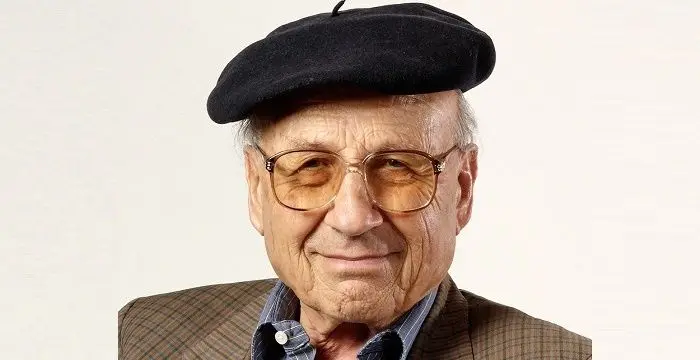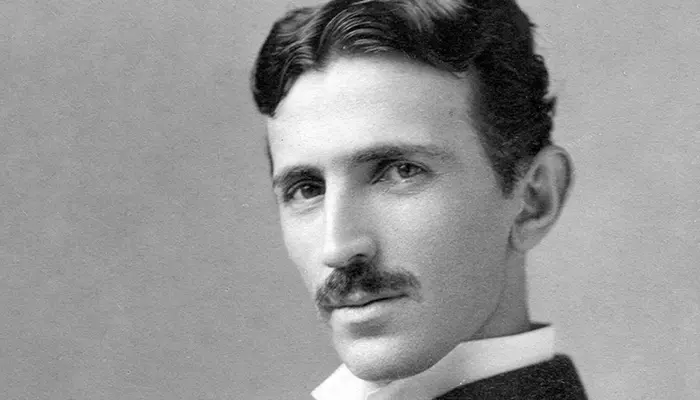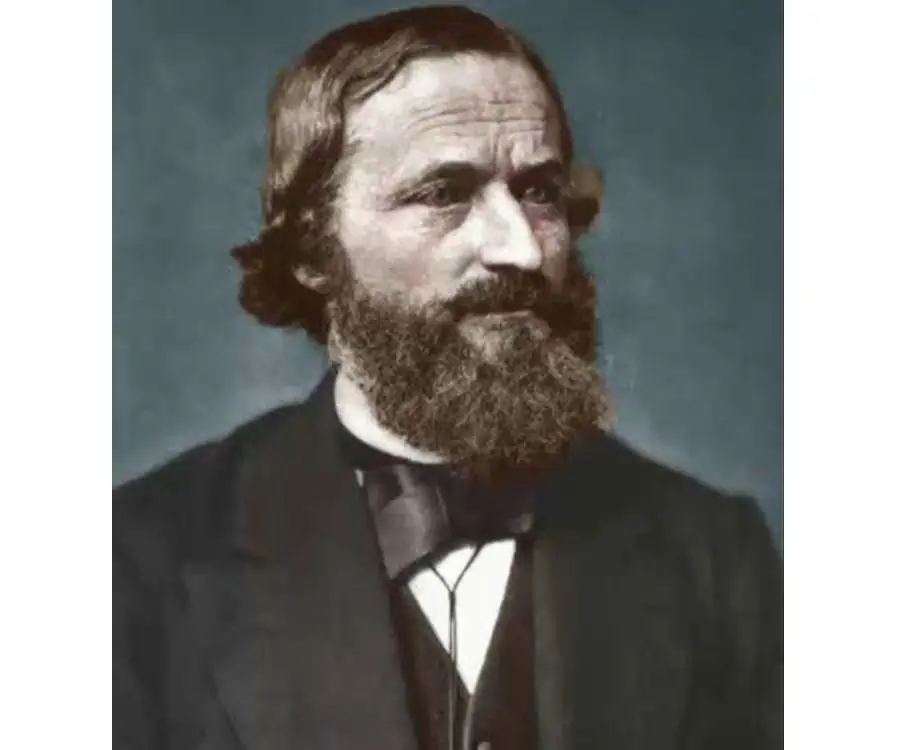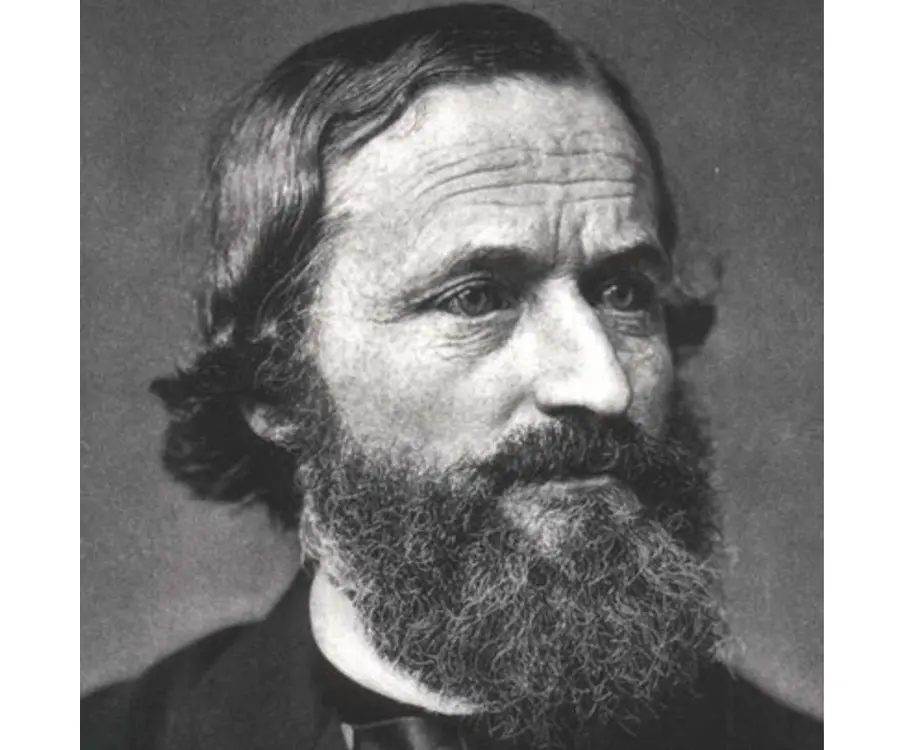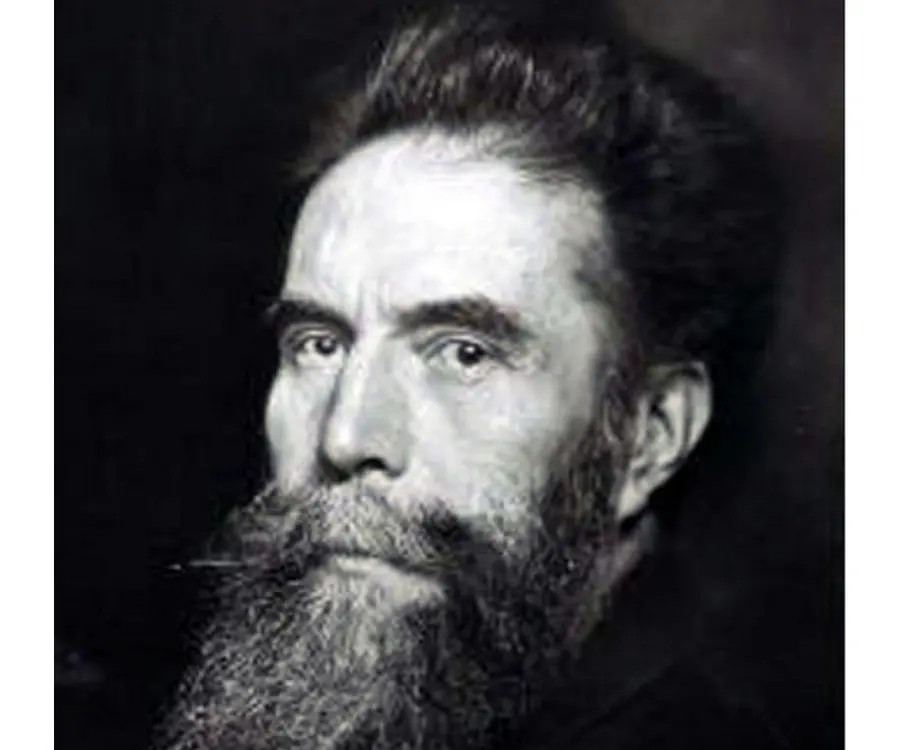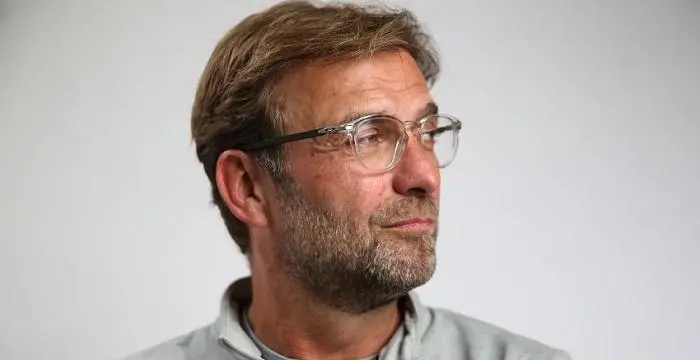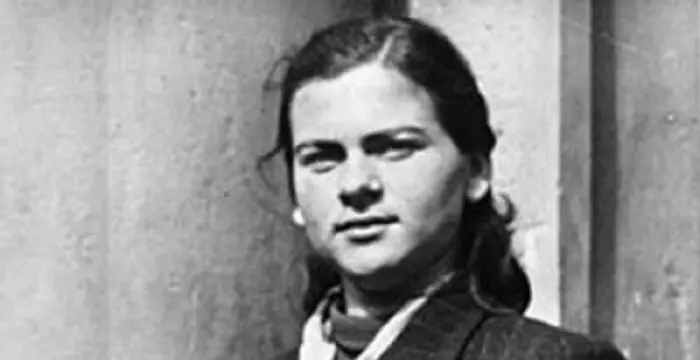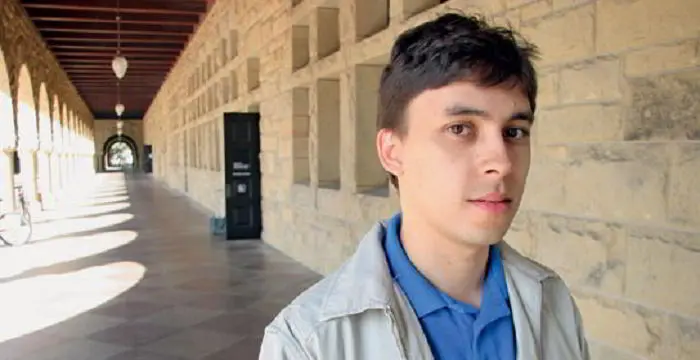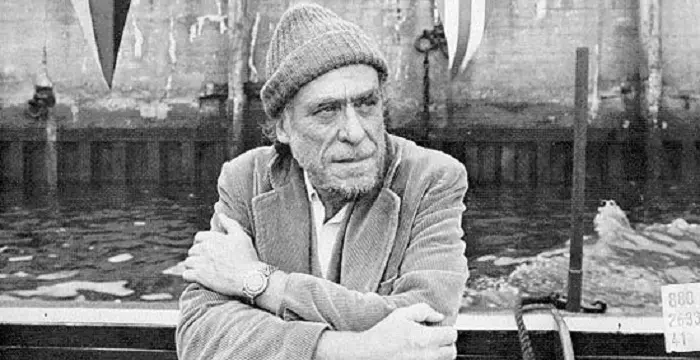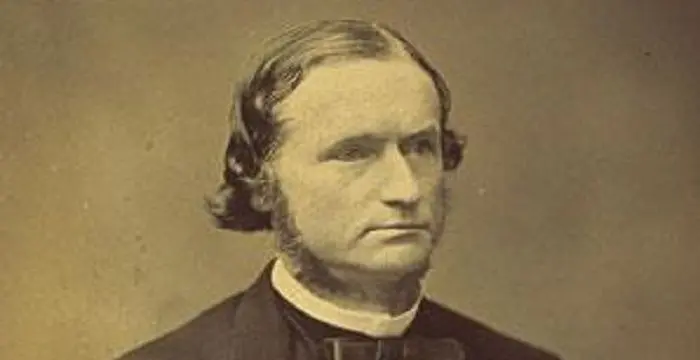
Gustav Kirchhoff - Physicists, Birthday and Life
Gustav Kirchhoff's Personal Details
Gustav Kirchhoff was a German physicist who made major contributions to the fields of thermochemistry and electrical circuits
| Information | Detail |
|---|---|
| Birthday | March 12, 1824 |
| Died on | October 17, 1887 |
| Nationality | German |
| Famous | Scientists, Physicists |
| Spouses | Clara Richelot |
| Known as | Gustav Robert Kirchhoff |
| Universities |
|
| Discoveries / Inventions |
|
| Birth Place | Königsberg, Kingdom of Prussia |
| Gender | Male |
| Father | Friedrich Kirchhoff |
| Mother | Johanna Henriette Wittke |
| Sun Sign | Pisces |
| Born in | Königsberg, Kingdom of Prussia |
| Famous as | Physicist |
| Died at Age | 63 |
// Famous Physicists
Henry Cavendish
Henry Cavendish was a theoretical chemist and physicist, renowned for discovery of hydrogen and calculation of the mass of earth. To know more about his childhood, profile, timeline and career read on
Walter Kohn
Nobel Laureate Walter Kohn was an Austrian-born American theoretical chemist and physicist. Check out this biography to know about his childhood, life, achievements, works & timeline.
Nikola Tesla
Nikola Tesla was a Serbian-American inventor, best known for his development of alternating current electrical systems. This biography of Nikola Tesla provides detailed information about his childhood, life, achievements, works & timeline.
Gustav Kirchhoff's photo
Who is Gustav Kirchhoff?
Gustav Robert Kirchhoff was a German physicist who made major contributions to the fields of thermochemistry and electrochemistry. His findings helped increase the fundamental understanding of black-body radiation, electrical circuits, and spectroscopy. He has had laws of thermochemistry, circuit theory, and thermal emission named after him. He laid the framework for using mathematics to understand the science of physics, which was a very important step in the scientific field. Despite numerous challenges he faced in his lifetime, including his disability, he was persistent in his research and continued to explore various expanses of science. The laws, named after him, are widely used today by many physicists to solve complex physics problems. The many discoveries he made during his lifetime will never be forgotten, as they were essential to the understanding of modern theoretical physics. His life showed that with intellect and dedication, great scientific achievements can be made. He is a symbol of excellence for every aspiring scientist and his life’s work could be described as a phenomenal tribute to science. Without his remarkable contributions, modern physics may not be where it is today.
// Famous Scientists
Juliane Koepcke
Juliane Koepcke is a German-Peruvian biologist, who was the lone survivor among the 92 passengers and crew of the ill-fated LANSA Flight 508 that crashed in the Peruvian rainforest on 24 December 1971. Know more about her life in this biography.
Henry Cavendish
Henry Cavendish was a theoretical chemist and physicist, renowned for discovery of hydrogen and calculation of the mass of earth. To know more about his childhood, profile, timeline and career read on
Konstantin Tsiolkovsky
Konstantin Tsiolkovsky was a Russian rocket scientist and a pioneer of astronautics. This biography provides detailed information about his childhood, family, personal life, career, achievements, etc.
Childhood & Early Life
He was born on March 12, 1824 in Königsberg, Kingdom of Prussia (present-day Russia) to Friedrich Kirchhoff, a lawyer, and his wife, Johanna Henriette Wittke.
His family was a part of the intellectual community of Konigsberg and he was raised with the mindset that serving the state was really the only open course for him. University professors were civil servants in Prussia at this time and his parents expected him to become a professor and serve his state.
He attended the Albertus University of Konigsberg and received his early education from Franz Neumann, the noted theoretical physicist, and Friedrich Richelot, the mathematician.
At the university, he studied under the guidance of Franz Neumann and Friedrich Julius Richelot. While studying in university, he made his first outstanding research contribution related to electrical currents, ‘Kirchhoff's Law’, in 1845.
He obtained his doctorate degree in 1847 and moved to Berlin, where he stayed until he received a professorship at Breslau.
Career
In 1850, he became a professor of physics at the University of Breslau, where he met Robert Bunsen, with whom he struck a lifelong friendship. He worked there for four years until he was offered a post of Professor of Physics at the University of Heidelberg.
In 1858, he proposed ‘Kirchhoff’s law of thermochemistry’ which showed that the variation of the heat of a chemical reaction is given by the difference in heat capacity between products and reactants.
In 1859, while at Heidelberg, he proposed his law of thermal radiation. He was able to provide proof of it in 1861, when it became an accepted law of physics and chemistry.
In 1861, he and his colleague, Robert Bunsen, examined the spectrum of the sun and were able to identify the chemical elements in the sun's atmosphere. They proved that the elements, when heated to specific temperatures, emit colored lights and also discovered two new elements, caesium and rubidium in the course of their investigations.
After all of these discoveries he was offered the first position officially dedicated to theoretical physics at the University of Berlin in 1875, which he held until his death.
After he took the position in Berlin, he came out with his best known treatise which is the ‘Vorlesungen über mathematische Physik’.
Major Works
His first and foremost notable work was the introduction of Kirchhoff’s Circuit Laws in 1845. It allowed calculation of currents, voltages and resistances in electrical circuits with multiple loops. The first law states that algebraic sum of currents in a network of conductors meeting at a point is zero. The second law is that, the directed sum of voltages around any closed network is zero.
In 1857, he became the first scientist to show that electric current flows at the speed of light through a resistance less wire.
He contributed greatly to the field of spectroscopy by formalizing three laws that describe the spectral composition of light emitted by incandescent objects. He coined the term ‘black body radiation’ and is also known for being the first to explain the dark lines in the sun's spectrum.
Awards & Achievements
In 1862, he was awarded the ‘Rumford Medal’ for his work on solar spectra.
In 1877, he was awarded the ‘Davy Medal’ along with Robert Bunsen for their extraordinary researches & discoveries in spectrum analysis.
In 1887, he posthumously became the first recipient of the ‘Janssen Medal’ for his spectacular work on the science of spectroscopy.
Personal Life & Legacy
After graduating in 1847, he married Clara Richelot, the daughter of his mathematics professor, Richelot. They had two daughters and three sons but Clara died in 1869 and he alone raised his children.
His life as a single parent was made even more challenging by a disability that forced him to use crutches or a wheelchair most of the time.
In 1872, he married Luise Brömmel, who was from Goslar, in Heidelberg.
He died on October 17, 1887, at the age of 63, during his professorship at Berlin. He was buried in the St. Matthäus Kirchhoff Cemetery in Schöneberg, Berlin.
// Famous Pisces Celebrities peoples
Christine Baumgartner
Christine Baumgartner is an American model and the wife of famous American actor Kevin Costner. Check out this biography to know about her birthday, childhood, family life, achievements and fun facts about her.
Galina Becker
Galina Becker is a former athlete and fitness model from America. Check out this biography to know about her birthday, childhood, family life, achievements and fun facts about her.
Nikkie De Jager
Check out all that you wanted to know about Nikkie De Jager, the famous Dutch Makeup artist; her birthday, her family and personal life, her boyfriends, fun trivia facts and more.
Gustav Kirchhoff's awards
| Year | Name | Award |
|---|---|---|
Other | ||
| 0 | Janssen Medal (1887) | |
| 0 | Davy Medal (1877) | |
| 0 | Rumford medal (1862) | |
Gustav Kirchhoff biography timelines
- // 12th Mar 1824He was born on March 12, 1824 in Königsberg, Kingdom of Prussia (present-day Russia) to Friedrich Kirchhoff, a lawyer, and his wife, Johanna Henriette Wittke.
- // 1845At the university, he studied under the guidance of Franz Neumann and Friedrich Julius Richelot. While studying in university, he made his first outstanding research contribution related to electrical currents, ‘Kirchhoff's Law’, in 1845.
- // 1847He obtained his doctorate degree in 1847 and moved to Berlin, where he stayed until he received a professorship at Breslau.
- // 1847 To 1869After graduating in 1847, he married Clara Richelot, the daughter of his mathematics professor, Richelot. They had two daughters and three sons but Clara died in 1869 and he alone raised his children.
- // 1850In 1850, he became a professor of physics at the University of Breslau, where he met Robert Bunsen, with whom he struck a lifelong friendship. He worked there for four years until he was offered a post of Professor of Physics at the University of Heidelberg.
- // 1857In 1857, he became the first scientist to show that electric current flows at the speed of light through a resistance less wire.
- // 1858In 1858, he proposed ‘Kirchhoff’s law of thermochemistry’ which showed that the variation of the heat of a chemical reaction is given by the difference in heat capacity between products and reactants.
- // 1859In 1859, while at Heidelberg, he proposed his law of thermal radiation. He was able to provide proof of it in 1861, when it became an accepted law of physics and chemistry.
- // 1861In 1861, he and his colleague, Robert Bunsen, examined the spectrum of the sun and were able to identify the chemical elements in the sun's atmosphere. They proved that the elements, when heated to specific temperatures, emit colored lights and also discovered two new elements, caesium and rubidium in the course of their investigations.
- // 1862In 1862, he was awarded the ‘Rumford Medal’ for his work on solar spectra.
- // 1872In 1872, he married Luise Brömmel, who was from Goslar, in Heidelberg.
- // 1875After all of these discoveries he was offered the first position officially dedicated to theoretical physics at the University of Berlin in 1875, which he held until his death.
- // 1877In 1877, he was awarded the ‘Davy Medal’ along with Robert Bunsen for their extraordinary researches & discoveries in spectrum analysis.
- // 1887In 1887, he posthumously became the first recipient of the ‘Janssen Medal’ for his spectacular work on the science of spectroscopy.
- // 17th Oct 1887He died on October 17, 1887, at the age of 63, during his professorship at Berlin. He was buried in the St. Matthäus Kirchhoff Cemetery in Schöneberg, Berlin.
// Famous German peoples
Jordan Carver
Jordan Carver is a famous German model. Let’s take a close look at her personal life, including her age, career, net worth, achievements and some fun facts.
Jürgen Klopp
Jürgen Klopp is a German football manager, and a former professional football player. Check out this biography to know more about his childhood, family, personal life, etc.
Irma Grese
Irma Grese was a notorious German Nazi concentration camp guard during the Second World War. This biography profiles her childhood, life, horrifying acts, death and other facts.
Juliane Koepcke
Juliane Koepcke is a German-Peruvian biologist, who was the lone survivor among the 92 passengers and crew of the ill-fated LANSA Flight 508 that crashed in the Peruvian rainforest on 24 December 1971. Know more about her life in this biography.
Jawed Karim
Jawed Karim is a German-American internet entrepreneur, technologist and co-founder of the video-sharing website, YouTube. Check out this biography to know about his childhood, family, personal life, achievements, age, etc.
Charles Bukowski
Charles Bukowski was a German-born American novelist, short story writer and poet. With this biography, learn in details about his childhood, life, works, career and timeline
Gustav Kirchhoff's FAQ
What is Gustav Kirchhoff birthday?
Gustav Kirchhoff was born at 1824-03-12
When was Gustav Kirchhoff died?
Gustav Kirchhoff was died at 1887-10-17
Where was Gustav Kirchhoff died?
Gustav Kirchhoff was died in Berlin, Kingdom of Prussia
Which age was Gustav Kirchhoff died?
Gustav Kirchhoff was died at age 63
Where is Gustav Kirchhoff's birth place?
Gustav Kirchhoff was born in Königsberg, Kingdom of Prussia
What is Gustav Kirchhoff nationalities?
Gustav Kirchhoff's nationalities is German
Who is Gustav Kirchhoff spouses?
Gustav Kirchhoff's spouses is Clara Richelot
What was Gustav Kirchhoff universities?
Gustav Kirchhoff studied at Kant Russian State University, University of Königsberg
What is Gustav Kirchhoff's inventions/discoveries?
Discovered Caesium And Rubidium was invented (or discovered) by Gustav Kirchhoff
Who is Gustav Kirchhoff's father?
Gustav Kirchhoff's father is Friedrich Kirchhoff
Who is Gustav Kirchhoff's mother?
Gustav Kirchhoff's mother is Johanna Henriette Wittke
What is Gustav Kirchhoff's sun sign?
Gustav Kirchhoff is Pisces
How famous is Gustav Kirchhoff?
Gustav Kirchhoff is famouse as Physicist

